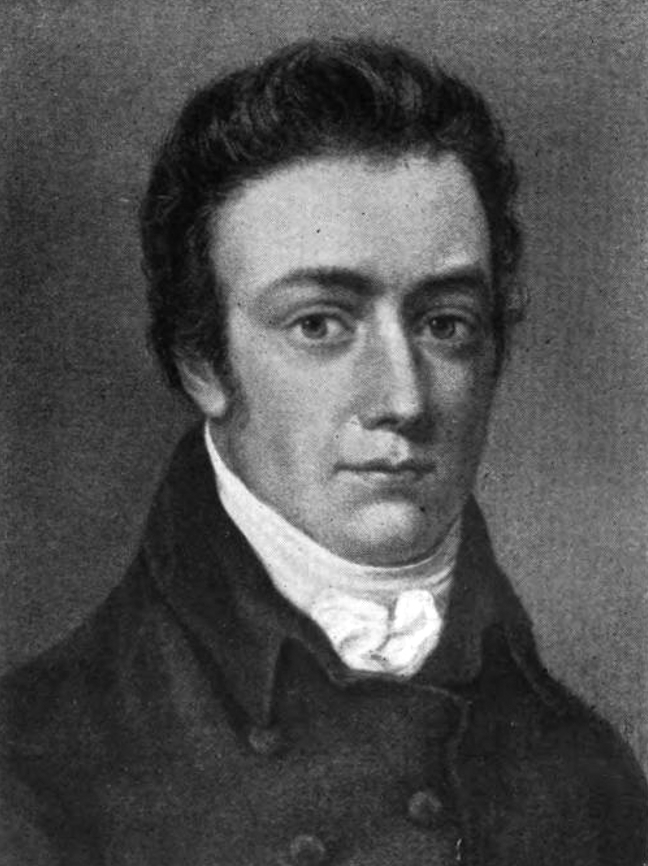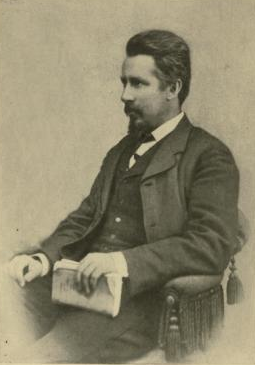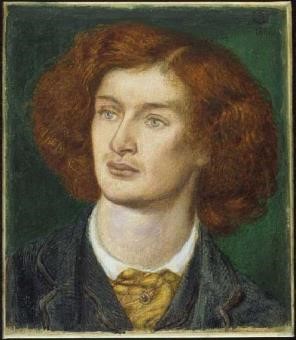|
Fears In Solitude
''Fears in Solitude'', written in April 1798, is one of the conversation poems by Samuel Taylor Coleridge. The poem was composed while France threatened to invade Great Britain. Although Coleridge was opposed to the British government, the poem sides with the British people in a patriotic defense of their homeland. The poem also emphasizes a desire to protect one's family and to live a simple life in harmony with nature. The critical response to the poem was mixed, with some critics claiming that the work was "alarmist" and anti-British. Background Coleridge, a radical and Jacobin, was an early supporter of the French revolution and believed that it would bring much-needed political change to Europe and to Great Britain. However, the actions of the French government after the beginning of the revolution, especially their invasion of other nations, caused him to lose faith in their cause. Although Coleridge was opposed to the British government under prime minister William Pit ... [...More Info...] [...Related Items...] OR: [Wikipedia] [Google] [Baidu] |
Conversation Poems
The conversation poems are a group of at least eight poems composed by Samuel Taylor Coleridge (1772–1834) between 1795 and 1807. Each details a particular life experience which led to the poet's examination of nature and the role of poetry. They describe virtuous conduct and man's obligation to God, nature and society, and ask as if there is a place for simple appreciation of nature without having to actively dedicate one's life to altruism. The Conversation poems were grouped in the 20th century by literary critics who found similarity in focus, style and content. The series title was devised to describe verse where Coleridge incorporates conversational language while examining higher ideas of nature and morality. The works are held together by common themes, in particular they share meditations on nature and man's place in the universe. In each, Coleridge explores his idea of "One Life", a belief that people are spiritually connected through a universal relationship with Go ... [...More Info...] [...Related Items...] OR: [Wikipedia] [Google] [Baidu] |
Reflections On Having Left A Place Of Retirement
''Reflections on Having Left a Place of Retirement'' is a poem written by English poet Samuel Taylor Coleridge in 1796. Like his earlier poem ''The Eolian Harp'', it discusses Coleridge's understanding of nature and his married life, which was suffering from problems that developed after the previous poem. Overall, the poem focuses on humanity's relationship with nature in its various aspects, ranging from experiencing an Edenic state to having to abandon a unity with nature in order to fulfill a moral obligation to humanity. The discussion of man's obligation to each other leads into a discussion on the difference between the life of a philosopher and the life of a poet. By the end of the poem, the narrator follows the philosophical path in a manner similar to what Coleridge sought to do. The response to the poem from critics was mostly positive, with many of them emphasizing the religious aspects of the work in their analysis. Background After marrying Sara Fricker in autumn 179 ... [...More Info...] [...Related Items...] OR: [Wikipedia] [Google] [Baidu] |
1798 Poems
Events January–June * January – Eli Whitney contracts with the U.S. federal government for 10,000 muskets, which he produces with interchangeable parts. * January 4 – Constantine Hangerli enters Bucharest, as Prince of Wallachia. * January 22 – A coup d'état is staged in the Netherlands ( Batavian Republic). Unitarian Democrat Pieter Vreede ends the power of the parliament (with a conservative-moderate majority). * February 10 – The Pope is taken captive, and the Papacy is removed from power, by French General Louis-Alexandre Berthier. * February 15 – U.S. Representative Roger Griswold (Fed-CT) beats Congressman Matthew Lyon (Dem-Rep-VT) with a cane after the House declines to censure Lyon earlier spitting in Griswold's face; the House declines to discipline either man.''Harper's Encyclopaedia of United States History from 458 A. D. to 1909'', ed. by Benson John Lossing and, Woodrow Wilson (Harper & Brothers, 1910) p171 * March &nda ... [...More Info...] [...Related Items...] OR: [Wikipedia] [Google] [Baidu] |
Edward Dowden
Edward Dowden (3 May 18434 April 1913) was an Irish critic, professor, and poet. Biography He was the son of John Wheeler Dowden, a merchant and landowner, and was born at Cork, three years after his brother John, who became Bishop of Edinburgh in 1886. Edward's literary tastes emerged early, in a series of essays written at the age of twelve. His home education continued at Queen's College, Cork and at Trinity College, Dublin. He contributed to the literary magazine ''Kottabos.'' He had a distinguished career, becoming president of the Philosophical Society, and won the vice-chancellor's prize for English verse and prose, and the first senior moderatorship in ethics and logic. In 1867 he was elected professor of oratory and English literature in Dublin University. Dowden's first book, ''Shakspere: A Critical Study of His Mind and Art'' (1875),Dowden 1875, ''Shakspere: A Critical Study of His Mind and Art'': Online editionin HathiTrust Digital Library. resulted from a revis ... [...More Info...] [...Related Items...] OR: [Wikipedia] [Google] [Baidu] |
Fortnightly Review
''The Fortnightly Review'' was one of the most prominent and influential magazines in nineteenth-century England. It was founded in 1865 by Anthony Trollope, Frederic Harrison, Edward Spencer Beesly, and six others with an investment of £9,000; the first edition appeared on 15 May 1865. George Henry Lewes, the partner of George Eliot, was its first editor, followed by John Morley. The print magazine ceased publication in 1954. An online "new series" started to appear in 2009. History ''The Fortnightly Review'' aimed to offer a platform for a range of ideas, in reaction to the highly partisan journalism of its day. Indeed, in announcing the first issue of the ''Fortnightly'' in the ''Saturday Review'' of 13 May 1865, G. H. Lewes wrote, "The object of ''THE FORTNIGHTLY REVIEW'' is to become the organ of the unbiassed expression of many and various minds on topics of general interest in Politics, Literature, Philosophy, Science, and Art." But by the time Lewes left due to ... [...More Info...] [...Related Items...] OR: [Wikipedia] [Google] [Baidu] |
Christabel (poem)
''Christabel'' is a long narrative ballad by Samuel Taylor Coleridge, in two parts. The first part was reputedly written in 1797, and the second in 1800. Coleridge planned three additional parts, but these were never completed. Coleridge prepared for the first two parts to be published in the 1800 edition of ''Lyrical Ballads'', his collection of poems with William Wordsworth, but left it out on Wordsworth's advice. The exclusion of the poem, coupled with his inability to finish it, left Coleridge in doubt about his poetical power. It was published in a pamphlet in 1816, alongside ''Kubla Khan'' and ''The Pains of Sleep''. Coleridge wrote ''Christabel'' using an accentual metrical system, based on the count of only accents: even though the number of syllables in each line can vary from four to twelve, the number of accents per line rarely deviates from four. Synopsis The story of ''Christabel'' concerns a central female character of the same name and her encounter with a stra ... [...More Info...] [...Related Items...] OR: [Wikipedia] [Google] [Baidu] |
Algernon Charles Swinburne
Algernon Charles Swinburne (5 April 1837 – 10 April 1909) was an English poet, playwright, novelist, and critic. He wrote several novels and collections of poetry such as ''Poems and Ballads'', and contributed to the famous Eleventh Edition of the ''Encyclopædia Britannica''. Swinburne wrote about many taboo topics, such as lesbianism, sado-masochism, and anti-theism. His poems have many common motifs, such as the ocean, time, and death. Several historical people are featured in his poems, such as Sappho ("Sapphics"), Anactoria ("Anactoria"), and Catullus ("To Catullus"). Biography Swinburne was born at 7 Chester Street, Grosvenor Place, London, on 5 April 1837. He was the eldest of six children born to Captain (later Admiral) Charles Henry Swinburne (1797–1877) and Lady Jane Henrietta, daughter of the 3rd Earl of Ashburnham, a wealthy Northumbrian family. He grew up at East Dene in Bonchurch on the Isle of Wight. The Swinburnes also had a London home at Whitehall G ... [...More Info...] [...Related Items...] OR: [Wikipedia] [Google] [Baidu] |
Monthly Mirror
''The Monthly Mirror'' was an English literary periodical, published from 1795 to 1811, founded by Thomas Bellamy, and later jointly owned by Thomas Hill and John Litchfield. It was published by Vernor & Hood from the second half of 1798. The ''Mirror'' concentrated on theatre, in London and the provinces. The first editor for Hill was Edward Du Bois. From 1812 it was merged into the ''Theatrical Inquisitor''. Contributors * Thomas Batchelor * Sir John Carr *Leigh Hunt *Capel Lofft *Eliza Kirkham Mathews * Thomas Park * Horatio Smith * James Smith * John Taylor, writing opera "memoirs and sketches" *Henry Kirke White * Samuel Whyte *Tate Wilkinson Tate Wilkinson (27 October 173916 November 1803) was an English actor and manager. Life He was the son of a clergyman and was sent to Harrow. His first attempts at acting were badly received, and it was to his wonderful gift of mimicry that h ... Notes {{DEFAULTSORT:Monthly Mirror 1795 establishments in Great Britain 1812 d ... [...More Info...] [...Related Items...] OR: [Wikipedia] [Google] [Baidu] |
British Critic
The ''British Critic: A New Review'' was a quarterly publication, established in 1793 as a conservative and high-church review journal riding the tide of British reaction against the French Revolution. The headquarters was in London. The journal ended publication in 1843. High-church review The Society for the Reformation of Principles, founded in 1792 by William Jones of Nayland and William Stevens, established the ''British Critic'' in 1793. Robert Nares and William Beloe, editor and assistant editor respectively, were joint proprietors with the booksellers and publishers Francis and Charles Rivington. It was started as a monthly, but in 1825 its frequency was shifted to quarterly. Nares and Beloe edited the review for about 20 years. Around 1811 the magazine was bought by Joshua Watson and Henry Handley Norris, associated with the high-church pressure group known as the Hackney Phalanx. After 1825 the review "became more narrowly theological in scope". Tractarian takeover ... [...More Info...] [...Related Items...] OR: [Wikipedia] [Google] [Baidu] |
The Critical Review
''The Critical Review'' was a British publication appearing from 1756 to 1817. It was first edited by Tobias Smollett, from 1756 to 1763. Contributors included Samuel Johnson, David Hume, John Hunter, and Oliver Goldsmith. Early years The Edinburgh printer Archibald Hamilton started publishing ''The Critical Review'' in 1756 with Tobias Smollett as its first editor. The content was mainly book reviews, which were often long and favourable, with copious verbatim quotations. The Tory and High Church perspectives of contributors came through clearly, however. Besides Smollett, the writers of the first two volumes have been identified as John Armstrong, Samuel Derrick, Thomas Francklin, and Patrick Murdoch. After a libel against Admiral Sir Charles Knowles in the ''Review'', Smollett was sentenced to a fine of £100 and three months in King's Bench Prison. In 1763 he retired from the ''Review'', but left it as an influential publication. Sources External links Full textsat ... [...More Info...] [...Related Items...] OR: [Wikipedia] [Google] [Baidu] |
Robert Southey
Robert Southey ( or ; 12 August 1774 – 21 March 1843) was an English poet of the Romantic school, and Poet Laureate from 1813 until his death. Like the other Lake Poets, William Wordsworth and Samuel Taylor Coleridge, Southey began as a radical but became steadily more conservative as he gained respect for Britain and its institutions. Other romantics such as Byron accused him of siding with the establishment for money and status. He is remembered especially for the poem "After Blenheim" and the original version of "Goldilocks and the Three Bears". Life Robert Southey was born in Wine Street, Bristol, to Robert Southey and Margaret Hill. He was educated at Westminster School, London (where he was expelled for writing an article in ''The Flagellant'', a magazine he originated,Margaret Drabble ed: ''The Oxford Companion to English Literature'' (6th edition, Oxford, 2000), pp 953-4. attributing the invention of flogging to the Devil), and at Balliol College, Oxford. Southey ... [...More Info...] [...Related Items...] OR: [Wikipedia] [Google] [Baidu] |
A Conversation Poem
A, or a, is the first letter and the first vowel of the Latin alphabet, used in the modern English alphabet, the alphabets of other western European languages and others worldwide. Its name in English is ''a'' (pronounced ), plural ''aes''. It is similar in shape to the Ancient Greek letter alpha, from which it derives. The uppercase version consists of the two slanting sides of a triangle, crossed in the middle by a horizontal bar. The lowercase version can be written in two forms: the double-storey a and single-storey ɑ. The latter is commonly used in handwriting and fonts based on it, especially fonts intended to be read by children, and is also found in italic type. In English grammar, " a", and its variant " an", are indefinite articles. History The earliest certain ancestor of "A" is aleph (also written 'aleph), the first letter of the Phoenician alphabet, which consisted entirely of consonants (for that reason, it is also called an abjad to distinguis ... [...More Info...] [...Related Items...] OR: [Wikipedia] [Google] [Baidu] |






.png)
